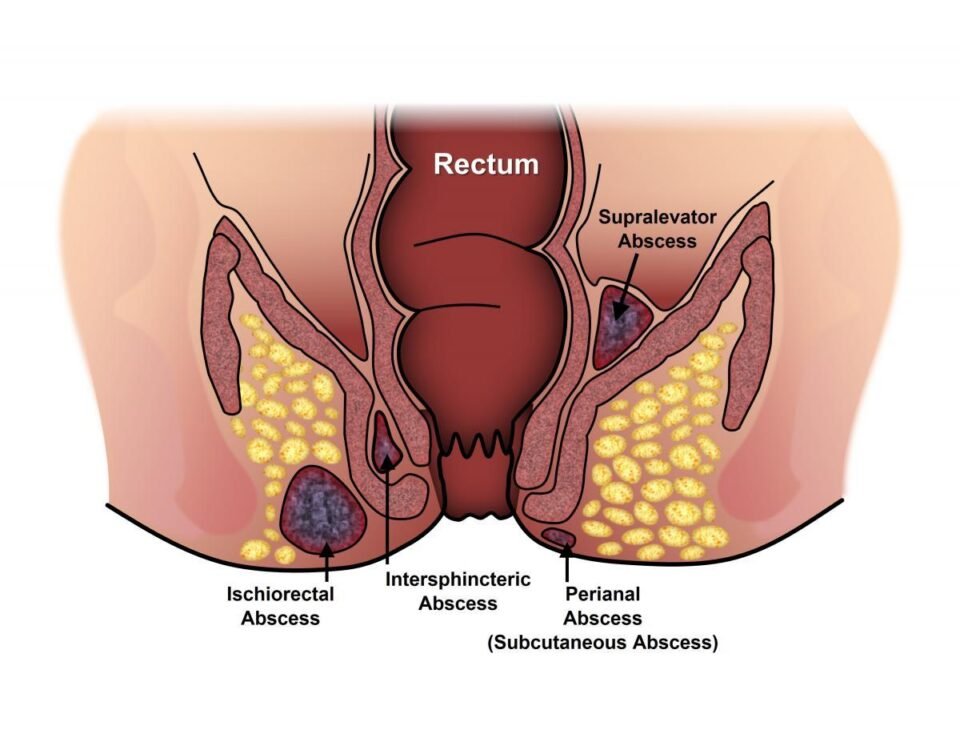An anal fistula can develop due to a clot in abscess, or pus inside the and around the canal. The pus is deposited on the skin’s surface and stays open for a prolonged period, it forms a fistula. It’s a unique opening that forms between the lining of the inside of the anatomy and skin around the anus. However, it is possible to be drained by itself or through a surgical procedure.
The best Fistula doctor in Kolkata who treats fistulas has provided a list of symptoms of anal fistula, which include:
* Swelling and pain in the area of the anus.
* Leakage or bleeding from pus
* Incontinence
* Irritation or inflammation of the skin surrounding the anus.
There are various types of surgeries for anal fistula surgeries. The kind of procedure you choose to undergo is contingent on the combination of your decision and your doctor based on the area of the fistula. For instance, if the fistula is below the sphincter muscle, the surgeon will leave the wound open to heal the tissues or if it’s located within the sphincter muscle, then the surgeon will insert an incision stitch inside the fistula in order to remove pus. when it’s located above the sphincter muscles, an incision or cut is created in the sphincter muscles. Although there are alternatives for treatment of hemorrhoids that are painless in India depending on how serious your condition is.
The most significant benefits of undergoing surgery to treat anal fistulas are:
* The procedure lasts 30 minutes and you’ll be granted discharged on next day. Therefore, the overnight hospitalization costs are eliminated.
* The procedure is proven to be the most effective because it heals the fistula completely, and also be able to prevent the spread of other infections.
What kind of complications could occur?
While, the majority of people do not suffer from the risks that could be posed. There are general risks that can be triggered by any procedure. Most likely outcomes will be the result of anesthesia side-effects or bleeding, infection or often the development of blood clots. To avoid the formation of clots within the veins in leg veins, renowned fistula surgeon from south Delhi recommends wearing compression stockings following surgery. Additionally, anti-clotting medication or injection may be administered to prevent the formation of blood clots.
1. Some of the immediate issues are:
* Pain
* Infection or bleeding: The wound in this procedure remains open due to fecal matter, which could be the cause of infections. So, proper cleansing is crucial.
* Scarring that is not attractive
2. Other complications that are specific to this are:
* It is difficult to pass urine
Possible constipation that is severe
* When passing wind involuntarily or losing feces: In case the sphincter muscles are injured during a fistulotomy procedure and the patient loses control of gas flow.
* Incontinence of the bowel or stool incontinence following surgery it could happen that the patient isn’t in a position to hold on to solid waste, i.e. they lose control over the ejection of stool. It’s often referred to as fecal indigestion.
* Re-occurrence: Although the chance of reoccurrence is small, there is a possibility of it happening again.
Usually, following fistula treatment, you could be discharged within the same day or within a few days after operation. It is important to take a complete rest for the first few days. You can begin with a bit of walking which can aid in healing of the wound. A complete healing could require some time. Furthermore being necessary to keep a pad on your body until the wound has healed completely.

